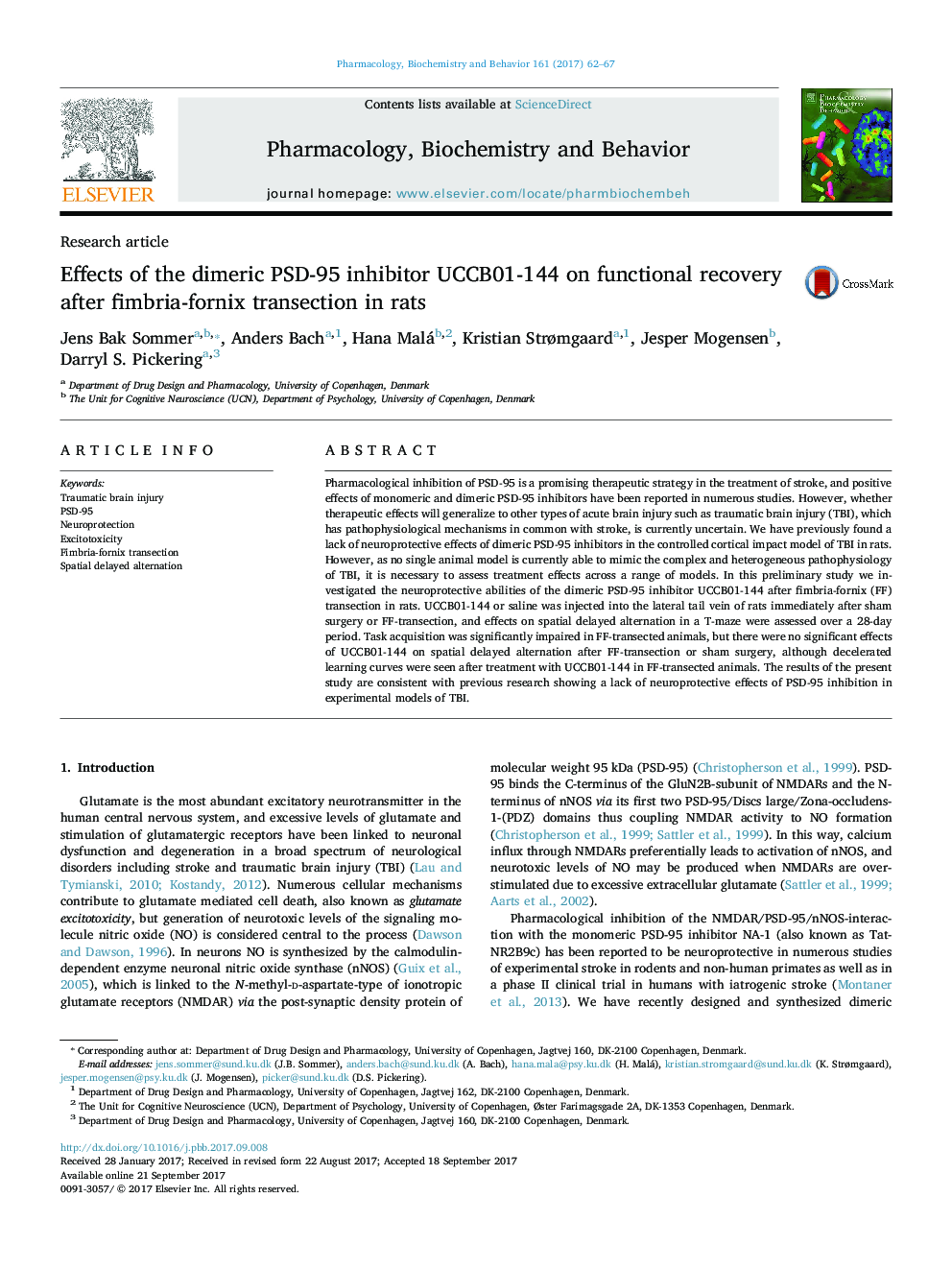| Article ID | Journal | Published Year | Pages | File Type |
|---|---|---|---|---|
| 5515141 | Pharmacology Biochemistry and Behavior | 2017 | 6 Pages |
Abstract
Pharmacological inhibition of PSD-95 is a promising therapeutic strategy in the treatment of stroke, and positive effects of monomeric and dimeric PSD-95 inhibitors have been reported in numerous studies. However, whether therapeutic effects will generalize to other types of acute brain injury such as traumatic brain injury (TBI), which has pathophysiological mechanisms in common with stroke, is currently uncertain. We have previously found a lack of neuroprotective effects of dimeric PSD-95 inhibitors in the controlled cortical impact model of TBI in rats. However, as no single animal model is currently able to mimic the complex and heterogeneous pathophysiology of TBI, it is necessary to assess treatment effects across a range of models. In this preliminary study we investigated the neuroprotective abilities of the dimeric PSD-95 inhibitor UCCB01-144 after fimbria-fornix (FF) transection in rats. UCCB01-144 or saline was injected into the lateral tail vein of rats immediately after sham surgery or FF-transection, and effects on spatial delayed alternation in a T-maze were assessed over a 28-day period. Task acquisition was significantly impaired in FF-transected animals, but there were no significant effects of UCCB01-144 on spatial delayed alternation after FF-transection or sham surgery, although decelerated learning curves were seen after treatment with UCCB01-144 in FF-transected animals. The results of the present study are consistent with previous research showing a lack of neuroprotective effects of PSD-95 inhibition in experimental models of TBI.
Keywords
Related Topics
Life Sciences
Biochemistry, Genetics and Molecular Biology
Biochemistry
Authors
Jens Bak Sommer, Anders Bach, Hana Malá, Kristian Strømgaard, Jesper Mogensen, Darryl S. Pickering,
